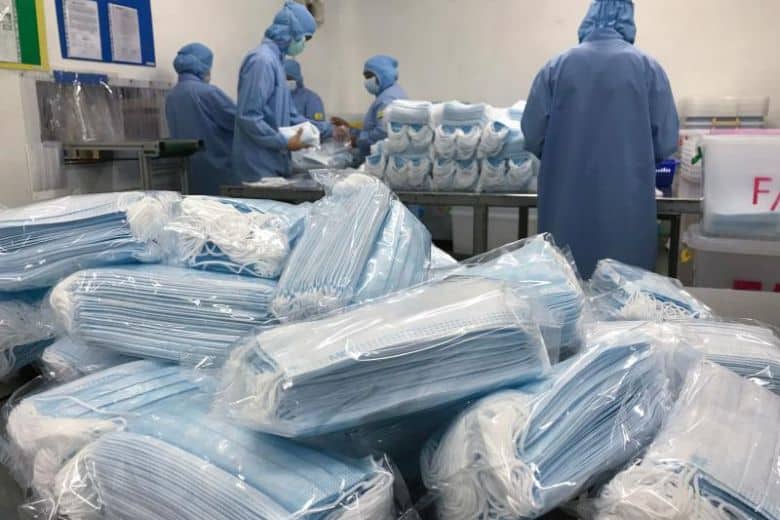
The Greek Ministry of Development and Investment is speaking with domestic producers and manufacturers who have expressed interest in getting involved in making surgical masks as the coronavirus pandemic continues, according to Ethnos.
Greece is already making hand sanitisers but the Ministry is now speaking with local companies who can follow the example of internationally renowned fashion companies Gucci, Yves Saint Laurent, Prada and Zara in developing masks.
One such Greek company is Lariplast, which specialises in the field of disposable plastics. The company has already installed two machines which will produce about 200,000 pieces per day.
The focus is on the ways in which the production chain could be created, starting with the supply of raw materials, as well as the resources that will support the whole effort.
"This is a demanding project which requires organisation and funding and is much more complex than the production of antiseptics," said sources familiar with the matter to Ethnos.
Political will is also considered necessary so that any potential obstacles to the licensing process are to be overcome quickly.
This was seen recently, when the well-known Papoutsanis soap company managed with the help of the government to secure the necessary licenses and install the machines to create antiseptics to help cover the huge shortage cause by the coronavirus crisis, within a 15 day period.
The pandemic has highlighted the importance of restructuring domestic production, and the need to reduce dependence on imports.
"The titanic struggle to secure healthcare from China proves once again why it needs to strengthen the industry and manufacturing sector," said the company.
The president of the Association of Industries of Thessaly and Central Greece, Eleni Koliopoulou describes the situation as a golden opportunity to review the country's development strategy and production model, focusing on domestic production to add that it is the only way to improve the balance and create well-paid jobs.
"No country can be completely self-sufficient in the globalised environment we live in, but we cannot be so dependent on imports," she said.
Ms. Koliopoulou considers it important to support industries that are healthy and competitive to overcome today's unprecedented crisis, in order to help the economy restart faster the next day. After all, as she puts it, "the history of the 2008 financial crisis has shown that those countries that had a strong industry came out faster and with fewer injuries." That is why, she says, it is crucial to take targeted measures to support industries that can lead to the restart of the economy as a priority in the following areas: liquidity, investment and employment (through job subsidies).

